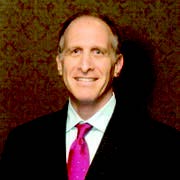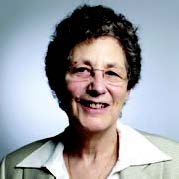Our Spiritual Power As We Age
 How hard it can be to talk about spirituality and aging. Inevitably, we have to consider religion, too, and all its complexity. The truth is that we live in a culture that confuses spirituality and religion. And yet, how important it is that we have deep conversations about our spiritual lives as we age.
How hard it can be to talk about spirituality and aging. Inevitably, we have to consider religion, too, and all its complexity. The truth is that we live in a culture that confuses spirituality and religion. And yet, how important it is that we have deep conversations about our spiritual lives as we age.
For many of us still, a common hit to our core identity is a punch from religion. How paradoxical that a piece of anyone’s spiritual development—sexuality and gender identity—is coupled with an assault from the one place we reasonably hope will give us nourishment. No wonder that many of us emerge into our fuller LGBTQI selves with a disdain for theology. And in this deep hurt, the spiritual bruise tends to remain unattended. We confuse a religious stance for a spiritual one. We listen to the broader cultural messages that claim religious authority, and then, we don’t push religious institutions on their theological front, and toward the end of our days we remain hurt.
But the deeper truth is that we are all born with a natural spiritual hunger. It is a hunger as natural as the need for food, for shelter and for intimacy. Think of all the ways in which we know we must eat to simply remain in the world. One reason why starvation moves us so deeply—whether by protest, climate change, or economic devastation—is that we all know that one needs to have food to stay alive. Spiritual hunger may be subtler than the actual craving to eat, but spiritual hunger is no less potent.
If you gather a group together and ask, “What is spiritual for you?” responses will differ. We might talk about something in nature, such as taking a hike or walking on the beach. We might reflect on the arts, such as opera, or on a relationship, such as with a life partner, a pet or a lover. For most of us, our spiritual needs are satisfied outside of religious venues like a church, a synagogue, a temple, or a mosque.
For most of us, spiritual needs are nourished outside of theology or religious traditions. And yet, we yearn for satisfaction there, too. You might think of the difference between spirituality and religion in this way: When you give a name to spiritual experience, or ascribe spiritual experience to a deity like saying Jesus or Allah or Buddha or God, then you cross the line from spirituality into a religion. Naming a deity creates a specific framework, like holidays and prayer language, to spirituality. From there, a core narrative evolves that defines a theology.
Over our collective LGBT history, many of us have left our religious roots, returned to them, pushed to change them, always had a positive experience, or formed different spiritual frameworks altogether. Regardless, our natural spiritual hunger remains. And, as we age, those needs tend to rise more forcefully. It seems this is, in part, because our accumulated years bring wisdom with them, with coming out, making our way in the world, the families we form and nourish, the intimacy we explore and cultivate, and the events we have lived through. All highlight core spiritual needs.
Knowing that we are a part of something larger, becoming curious about the places we have experienced awe, exploring our inner landscape for the places we have softened and the places we have hardened, rejoicing in the new structures we have hewed, commemorating the things we have released and the things we have clung to, giving homage to the wounds we have washed and the healing we have achieved…all of these, and more, are a part of the natural spiritual journey.
Aging is many things. Among them is a kind of self-reflective capacity that reasonably includes the need for spiritual nourishment. Let’s bring our authentic spiritual experience to form new paradigms for LGBT life and push our religious institutions to spiritually nourish us. Let’s bequeath a legacy of spiritual life to our next generation.
From our authentic response to AIDS, we shifted a public health agenda that has forever changed the landscape of breast cancer and other diseases. From our use of the law, attorneys argued before the Supreme Court and altered everything from States rights to our income tax system. Now, let’s frame spiritual nourishment and theological legitimacy.
Rabbi Eric Weiss is CEO/President of Bay Area Jewish Healing Center, which provides Jewish spiritual care to those who are ill, dying and bereaved. He is the first openly Gay student to be admitted and ordained to the Reform movement’s seminary Hebrew Union College-Jewish Institute of Religion.
LGBT Resources
for Seniors
• Openhouse: 415-296-8995 openhouse-sf.org/
• Family Caregiver
Alliance: 415-434-3388
www.caregiver.org
• Institute on Aging: 415-750-4111, www.ioaging.org/
• National Resource
Center on LGBT Aging
www.lgbtagingcenter.org/
• Project Open Hand
San Francisco: Nutrition
Services, 415-447-2300
www.openhand.org/
• SAGE: 212-741-2247
www.sageusa.org/about/
• Shanti Project, Inc: HIV Services and Life Threatening Illnesses, 415-674-4700
www.shanti.org/
Alzheimer’s Association Programs and Services:
• 24/7 Helpline: 1-800-272-3900, www.alz.org/norcal/; Online Community: www.alzheimersblog.org/lgbt-forum
• Memory Clinic, Kaiser
Permanente Santa Clara Medical Center: 408-530-6900, mydoctor.kaiserpermanente.org/ncal/facilities/region/santaclara/area_master/departments/memoryclinic/index.jsp
Dr. Marcy Adelman oversees the new Bay Times Aging in Community column. For her summary of current LGBT senior challenges and opportunities, please go to: sfbaytimes.com/challenges-and-opportunties









Recent Comments